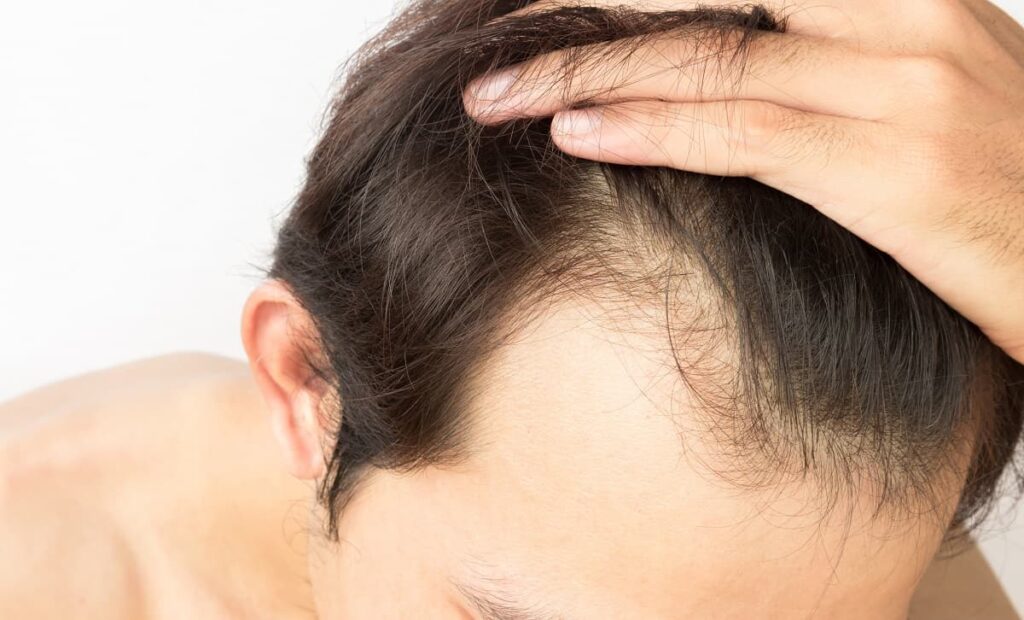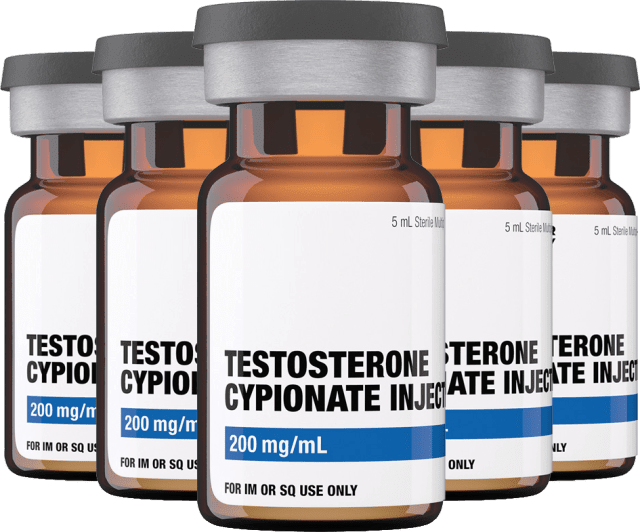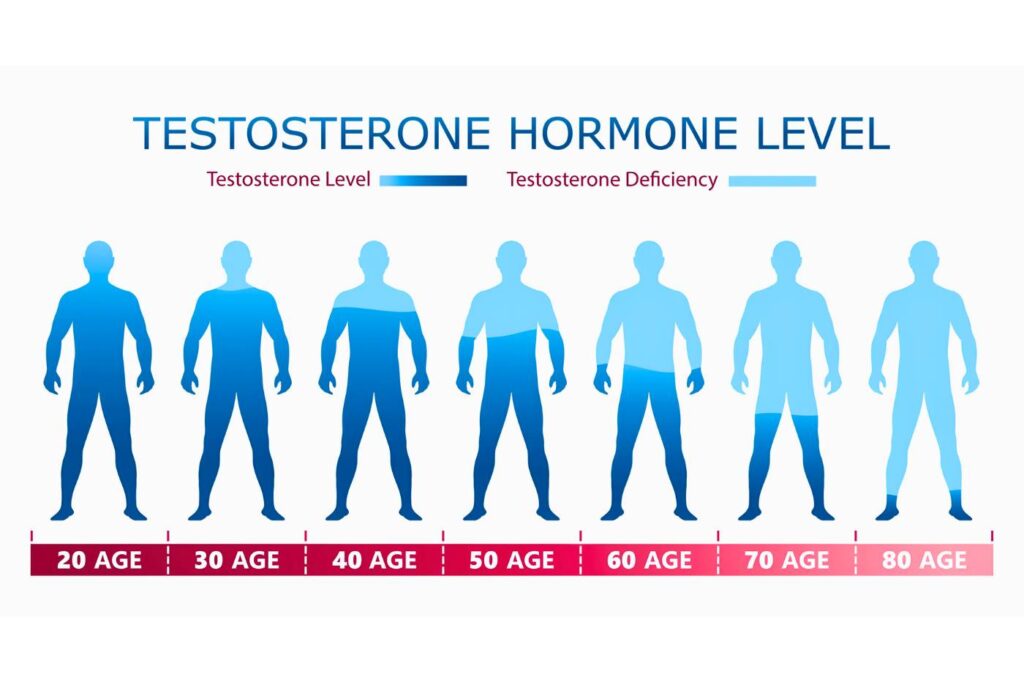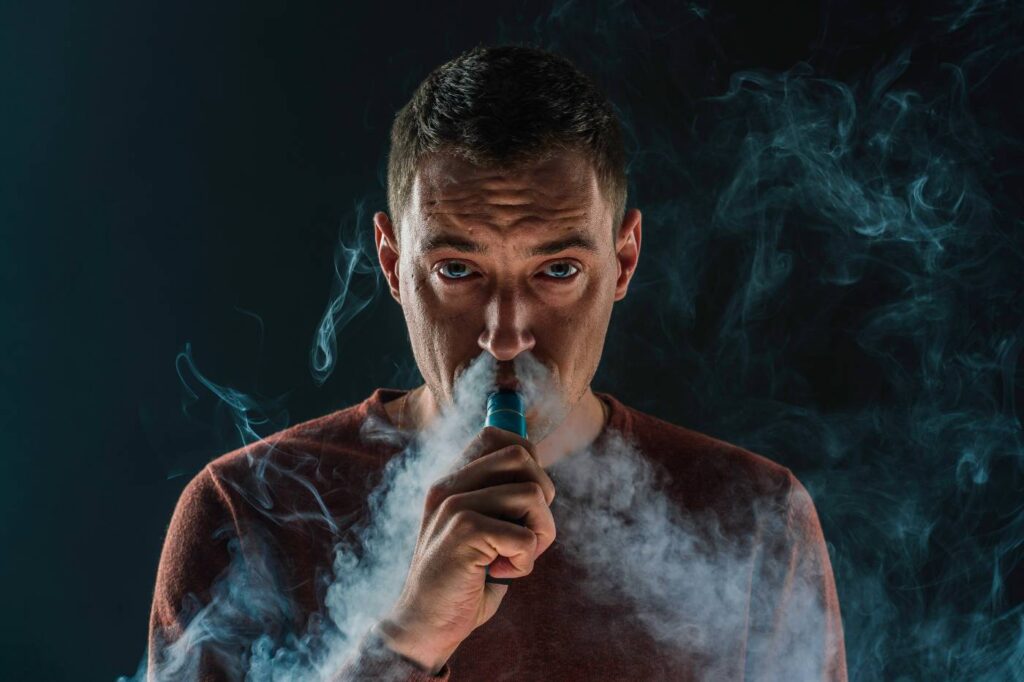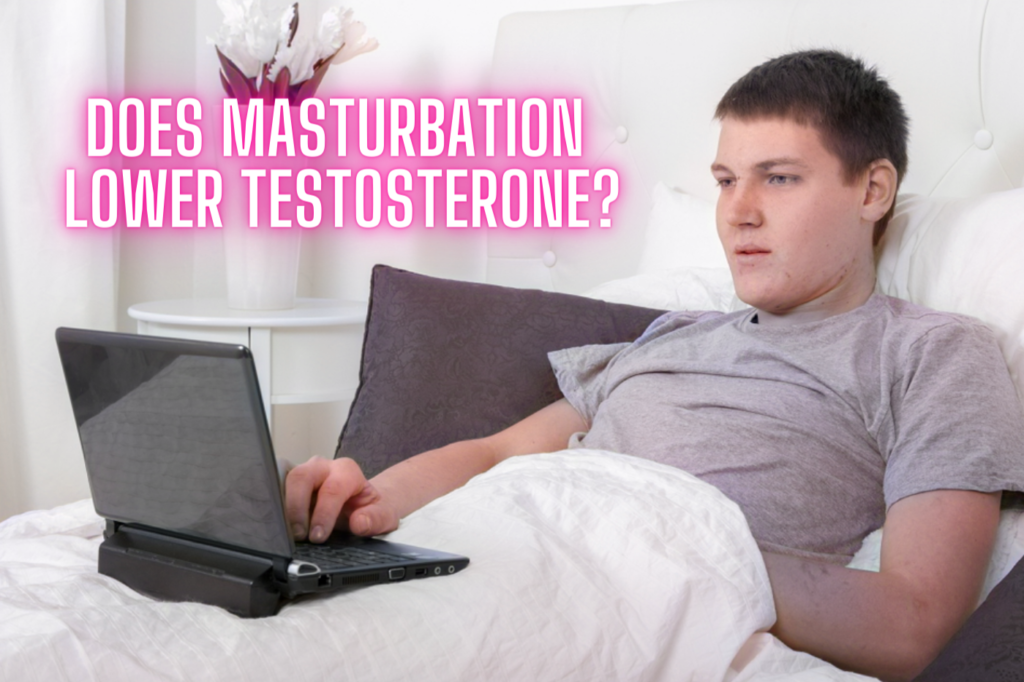Testosterone itself does not directly cause hair loss. Hair loss is influenced by dihydrotestosterone (DHT), a derivative of testosterone.
Hair loss, often linked to male pattern baldness, is a common concern for many. Testosterone, a key hormone in the male body, converts to dihydrotestosterone (DHT). This conversion process plays a significant role in hair loss. DHT binds to hair follicles, causing them to shrink and eventually stop producing hair.
Genetics also play a crucial role in determining an individual’s sensitivity to DHT. Understanding the relationship between testosterone, DHT, and hair loss can help in seeking appropriate treatments. Effective management requires a combination of medical intervention and lifestyle changes. Consulting a healthcare professional can provide personalized advice and solutions for hair loss concerns.
Introduction To Testosterone And Hair Health
Testosterone is a crucial hormone in the human body. It plays many roles, including in hair health. Understanding how testosterone affects hair can help clear common misconceptions.
The Role Of Hormones In Hair Growth
Hormones are vital for hair growth. They regulate the hair growth cycle. Testosterone is one of these hormones. It converts to dihydrotestosterone (DHT). DHT affects hair follicles. It can shrink them over time. This leads to hair thinning and hair loss. Both men and women have testosterone. It impacts hair health in both genders.
Common Misconceptions About Testosterone
Many believe testosterone always causes hair loss. This is not entirely true. Genetics play a significant role. Not everyone with high testosterone levels will lose hair. Some think hair loss only affects men. Women can also experience hair thinning and loss. Stress and diet also impact hair health. It’s not just about hormones.

Decoding Hair Loss: Factors Beyond Hormones
Hair loss often gets linked to testosterone. Yet, many other factors play a role. It’s essential to understand these influences to address hair loss effectively.
Genetic Predispositions
Genetics plays a significant role in hair loss. If your parents experienced hair loss, you might too. This condition is called androgenetic alopecia. It affects both men and women.
A gene from either parent can cause hair loss. This gene causes hair follicles to shrink. As follicles shrink, hair becomes thinner and eventually stops growing. It’s crucial to understand your family history. Early detection can help manage hair loss effectively.
Environmental And Lifestyle Influences
Various environmental factors impact hair health. Pollution, for instance, can damage hair. Harmful particles in the air settle on your scalp. They cause irritation and weaken hair strands.
Lifestyle choices also matter. Poor diet impacts hair health. Lack of essential vitamins and minerals can lead to hair thinning. Stress is another big factor. High stress levels can trigger hair loss.
Here are some common lifestyle influences:
- Diet: Lack of nutrients like iron and protein.
- Stress: High stress levels lead to hair shedding.
- Hair Care: Overuse of styling products and heat tools.
Adopting a healthy lifestyle can help maintain hair health. Eating a balanced diet and managing stress are vital. Proper hair care routines also play a role.
Testosterone: A Closer Look At The Hormone
Testosterone is a key hormone in both men and women. It plays a vital role in many bodily functions. Understanding its role can help clarify its link to hair loss.
Production And Function
Testosterone is primarily produced in the testicles in men. Women produce it in their ovaries, but in smaller amounts. The adrenal glands in both sexes also produce this hormone.
Testosterone is crucial for muscle growth and bone density. It also affects mood and energy levels. In men, it influences sperm production and sex drive.
| Function | Description |
|---|---|
| Muscle Growth | Promotes muscle mass and strength |
| Bone Density | Increases bone strength |
| Mood | Affects mental health and well-being |
| Sperm Production | Essential for male fertility |
| Sex Drive | Influences libido |
Testosterone Levels Throughout Life
Testosterone levels change throughout life. They peak during adolescence and early adulthood. After age 30, levels typically decline by about 1% per year.
In women, testosterone levels also fluctuate. They are highest during their 20s and gradually decrease with age. Menopause can cause a significant drop in levels.
- Adolescence: Rapid increase in levels.
- Early Adulthood: Peak levels.
- Middle Age: Gradual decline begins.
- Older Age: Continued decline, affecting various functions.
Monitoring testosterone levels is important for overall health. Consult a healthcare provider for advice on maintaining balanced levels.
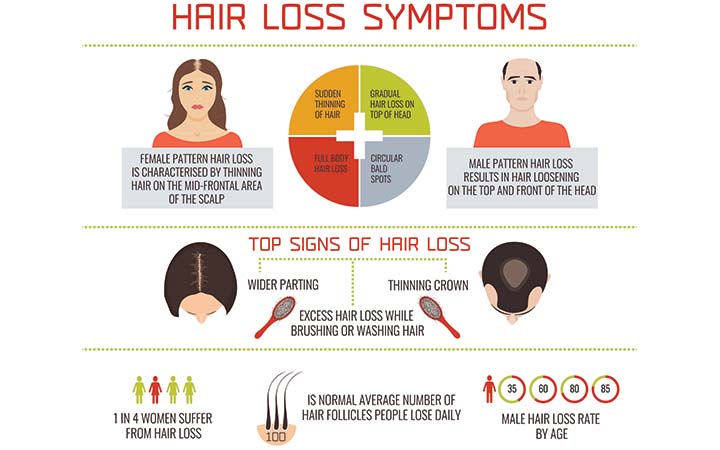
The Science Behind Hair Loss And Testosterone
Understanding hair loss involves looking at testosterone. Testosterone plays a key role. It affects both men and women. But, how does it cause hair loss?
Dihydrotestosterone (DHT): The Real Culprit?
Dihydrotestosterone (DHT) is a byproduct of testosterone. An enzyme called 5-alpha reductase converts testosterone to DHT. DHT binds to hair follicles. This binding can shrink hair follicles. Shrinking makes hair grow thinner and shorter.
Eventually, hair stops growing. This is called androgenetic alopecia. Both men and women can experience this. Men often see a receding hairline. Women usually notice thinning hair.
Scientific Studies And Evidence
Many scientific studies link DHT to hair loss. Researchers found higher DHT levels in balding scalps. A study in the Journal of Clinical Endocrinology showed this. Another study in the Journal of Investigative Dermatology confirmed it. Higher DHT levels directly correlate with hair loss.
Other factors can also play a role. Genetics, hormones, and age all influence hair loss. But, DHT remains a primary factor. Treatments often focus on reducing DHT. This can slow or stop hair loss.
| Factor | Impact on Hair Loss |
|---|---|
| Genetics | Determines susceptibility to hair loss |
| Hormones | Changes in hormone levels affect hair growth |
| Age | Older age increases the likelihood of hair loss |
| DHT Levels | Higher levels increase hair loss risk |
Differentiating Types Of Hair Loss
Hair loss can be a distressing experience. Understanding the types of hair loss is crucial for proper treatment. This section explores Androgenetic Alopecia and other forms of alopecia.
Androgenetic Alopecia
Androgenetic Alopecia is the most common type of hair loss. It is often referred to as male-pattern baldness.
In men, it usually starts with a receding hairline. The crown of the head also gets affected.
In women, it manifests as thinning hair across the scalp. It rarely leads to complete baldness.
Testosterone and its byproduct Dihydrotestosterone (DHT) play key roles. DHT shrinks hair follicles, leading to hair loss.
Other Forms Of Alopecia
There are various other types of alopecia. Each has its own causes and treatment methods.
| Type | Description |
|---|---|
| Alopecia Areata | An autoimmune disorder causing patchy hair loss. |
| Telogen Effluvium | Temporary shedding due to stress or illness. |
| Traction Alopecia | Hair loss from tight hairstyles pulling on roots. |
Understanding these types helps in seeking appropriate treatments. Consulting a healthcare professional is advisable for accurate diagnosis and therapy.
Myths Vs. Facts: Testosterone’s Role In Hair Loss

Testosterone often gets blamed for hair loss in men and women. But how much of this is true? This section will explore the myths and facts surrounding testosterone’s role in hair loss. Understanding the science can help debunk common misconceptions.
Debunking Common Myths
Many people believe that high levels of testosterone cause hair loss. This is a common myth. In reality, hair loss is more complicated than that.
- Myth: High testosterone levels directly cause hair loss.
- Fact: It’s not just testosterone but a specific byproduct called DHT (dihydrotestosterone) that affects hair follicles.
- Myth: Only men experience hair loss due to testosterone.
- Fact: Women can also experience hair loss due to hormonal changes, including those involving testosterone.
Another myth is that testosterone replacement therapy (TRT) always leads to hair loss. This is not always true. Many factors influence hair loss, including genetics and overall health.
What Research Says
Scientific studies have examined the relationship between testosterone and hair loss. The findings are intriguing.
| Aspect | Finding |
|---|---|
| Testosterone Levels | High levels do not always lead to hair loss. |
| DHT Levels | Increased DHT can shrink hair follicles, leading to hair thinning. |
| Genetics | Genetic predisposition plays a significant role in hair loss. |
| Hormonal Changes | Fluctuations in hormones can affect hair growth cycles. |
Research shows that DHT, rather than testosterone, is the main culprit. DHT binds to hair follicles, causing them to shrink. This leads to thinner and shorter hair strands.
Genetics also play a crucial role. If your family has a history of hair loss, you are more likely to experience it too. Hormonal changes during life stages like puberty and menopause can also influence hair loss.
Understanding these facts helps in addressing hair loss more effectively. Treatments can then be targeted more precisely.
Preventing And Treating Hair Loss
Hair loss can be distressing. Many believe testosterone causes hair loss. Whether it’s due to genetics or hormones, there are ways to manage it. Here, we explore how to prevent and treat hair loss effectively.
Medical Treatments Available
Medical treatments can help those experiencing hair loss. Here are some common options:
- Minoxidil: This over-the-counter treatment helps regrow hair.
- Finasteride: A prescription pill that reduces hair loss.
- Hair Transplants: Surgical procedure moving hair to balding areas.
Consult a doctor before starting any treatment. They can advise the best option for you.
Natural Remedies And Lifestyle Adjustments
Natural remedies can also help manage hair loss. Here are some tips:
- Healthy Diet: Eat foods rich in vitamins and minerals.
- Avoid Heat: Minimize the use of hair dryers and straighteners.
- Gentle Hair Care: Use mild shampoos and conditioners.
Stress management is also crucial. Practice relaxation techniques like yoga or meditation.
Remember, results can vary. Some might see significant improvement, while others might not. Stay patient and consistent with your chosen method.
Navigating Hair Loss: Coping Strategies And Support
Dealing with hair loss can be tough. It affects self-esteem and confidence. Understanding how to cope is crucial. Support systems and coping strategies help manage the emotional impact.
Psychological Impact Of Hair Loss
Hair loss can trigger feelings of sadness and anxiety. Many feel embarrassed or ashamed. These emotions affect daily life and interactions.
Studies show that hair loss affects mental health. The psychological impact can be severe. It often leads to social withdrawal. Talking about feelings helps reduce stress.
Finding The Right Support And Resources
Support groups offer a safe space to share experiences. They provide comfort and understanding. Many online communities also offer support.
Consulting a dermatologist can provide medical advice. They can recommend treatments and therapies. Books and articles offer valuable information. They provide insights into managing hair loss.
| Support Type | Benefits |
|---|---|
| Support Groups | Emotional comfort, Shared experiences |
| Online Communities | 24/7 support, Anonymous sharing |
| Dermatologists | Medical advice, Treatment options |
| Books and Articles | Information, Coping strategies |
- Join a support group.
- Participate in online forums.
- Consult a dermatologist.
- Read books on hair loss.
Finding the right support makes a big difference. It helps navigate the challenges of hair loss.
Conclusion: The Complex Relationship Between Testosterone And Hair
The connection between testosterone and hair loss is intricate. Testosterone is a key hormone in the body. It plays a major role in various bodily functions. Understanding its impact on hair health is essential.
Summary Of Key Points
- Testosterone is crucial for muscle growth and overall health.
- Hair loss is often linked to the byproduct DHT.
- DHT can shrink hair follicles, causing hair loss.
- Not everyone with high testosterone levels will lose hair.
- Genetics play a significant role in hair loss.
Encouraging Further Research And Understanding
Research on testosterone and hair loss is ongoing. Scientists seek to understand the full picture. More studies will help us learn better ways to manage hair loss.
| Factor | Impact on Hair |
|---|---|
| Testosterone | Supports overall health |
| DHT | Can cause hair follicle shrinkage |
| Genetics | Major role in hair loss |
More understanding can lead to better treatments. Scientists can create solutions to help those affected by hair loss. Stay informed and seek expert advice on this topic.
Frequently Asked Questions
Can Taking Testosterone Cause Hair Loss?
Yes, taking testosterone can cause hair loss. Increased testosterone levels may convert to DHT, which can shrink hair follicles, leading to hair loss.
Will My Hair Grow Back If I Stop Taking Testosterone?
Hair may grow back after stopping testosterone, but results vary. Consult a doctor for personalized advice.
How To Prevent Hair Loss While Taking Testosterone Ftm?
Use minoxidil to stimulate hair growth. Maintain a healthy diet rich in vitamins and minerals. Avoid harsh hair treatments. Reduce stress through exercise and relaxation techniques. Consult your doctor about potential medication options.
How To Stop Testosterone Converting To Dht?
To stop testosterone converting to DHT, consider taking finasteride or dutasteride. Consume foods rich in zinc and green tea. Maintain a healthy diet and lifestyle. Consult a healthcare professional for personalized advice.
Does Testosterone Cause Hair Loss?
Yes, high levels of testosterone can contribute to hair loss, especially in men with a genetic predisposition.
How Does Testosterone Affect Hair?
Testosterone converts to DHT, which can shrink hair follicles, leading to hair thinning and loss.
Can Low Testosterone Levels Cause Hair Loss?
Low testosterone usually does not cause hair loss. Other factors like stress or nutritional deficiencies might be involved.
Is Hair Loss From Testosterone Reversible?
Hair loss due to DHT is often permanent. Treatments can help slow or reduce the loss.
What Are The Symptoms Of Testosterone-related Hair Loss?
Symptoms include thinning hair on the scalp, receding hairline, and bald patches, particularly on the crown.
Are Women Affected By Testosterone-related Hair Loss?
Yes, women can experience hair thinning and loss due to high testosterone or hormonal imbalances.
Conclusion
Understanding the link between testosterone and hair loss is crucial. Both genetics and hormones play significant roles. Effective treatments exist, so consult a healthcare provider. Addressing the root cause can help manage and potentially reduce hair loss. Stay informed and proactive to maintain healthy hair and overall well-being.

